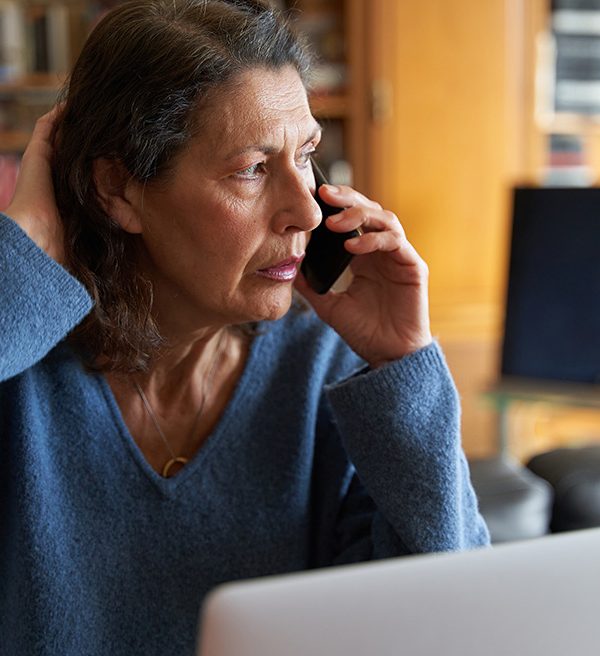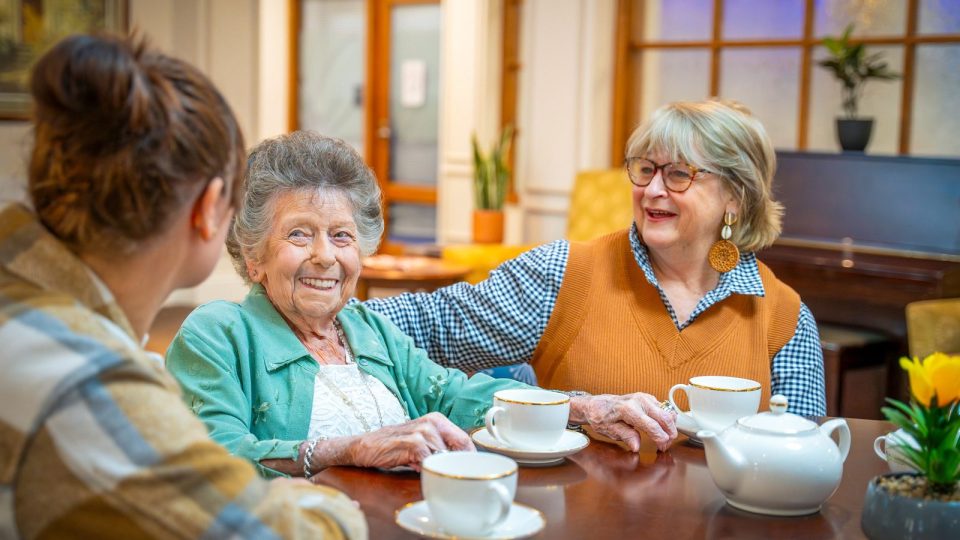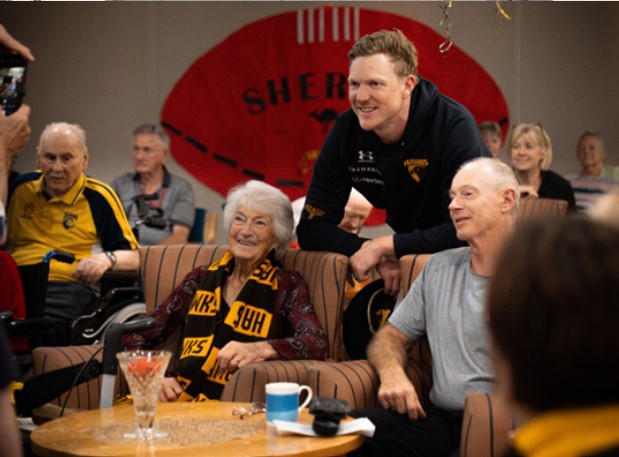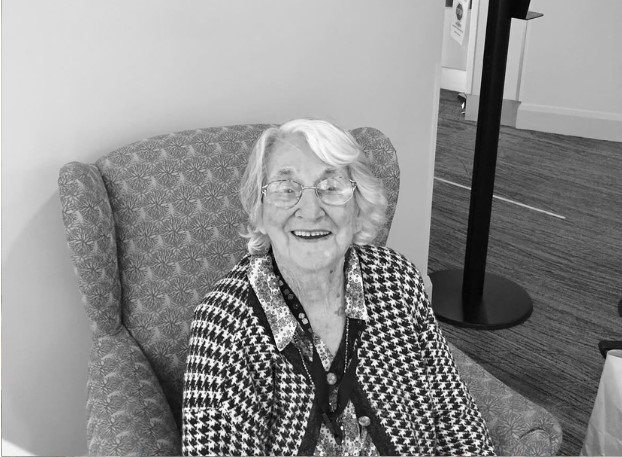Tips for dealing with life in the sandwich generation
- 11 Jul 2025

This is part two in our blog series on the sandwich generation. Here are some additional tips for dealing with the carer’s squeeze experienced by a growing number of Australians, particularly women.
Key points:
-
Summary of challenges facing the sandwich generation
-
Tips for dealing with the challenges
-
System reforms needed
Challenges of the sandwich generation
As discussed in our first blog here, there are different types of caring undertaken by the sandwich generation, all of which present challenges.
Financial
Caregivers in the sandwich generation may have some responsibility for their ageing parent’s/parents’ finances, from just being a reminder for upcoming bills to financially supporting their loved ones with payment of those bills. It may be worth consulting a financial planner to manage these financial caring responsibilities.
Emotional and physical
Sandwich generation carers often face significant emotional and physical challenges, including stress and anxiety. If these challenges are not managed and become chronic, this can lead to serious burnout. Burnout often presents as chronic exhaustion, depression and irritability. (You can read more about ways to notice and prevent burnout below.)
Workforce
As commented in a recent Hello Leaders article and the ABC’s recent series The Care Squeeze this invisible crisis highlights the reality that unpaid family care props up Australia’s under-pressure care systems. As highlighted in this Hello Leaders article, ‘this isn’t just a domestic dilemma; it’s a structural fault line running through the heart of our care economy.’
This fault line is impacting the workforce, with so many experienced women having to reduce their working hours – or leave the workforce – just to survive the care squeeze. Apart from the personal impact on the carers who are hobbled from reaching their work potential, there’s the flow-on effect of reducing our future workforce quality and quantity.

TIPS for dealing with the challenges
The oxygen mask self-care rule
Just as with travel, the most important advice for carers is to take care of your own health first. If you’re not mentally and physically strong, you can’t be effective as a carer and are at risk of carer’s burnout. (More on this below). Self-care is subjective, but work out what recharges you – perhaps a walk, coffee, socialising – and make it a non-negotiable part of your life. Also be careful not to over-extend yourself if possible by trying to be and do everything for everyone. You must preserve your energy where possible, as caring can be relentless.
Be open to professional support
It may help to have an independent counsellor to speak with about your caring responsibilities. You can learn more about mental health support resources in our blog How to Care for the Carer.
Burnout
Be vigilantly aware of possible carer’s burnout – it can be a cumulative thing and creep up on you. You can read more about caregiver burden and burnout, the signs to look out for and ways to prevent it here.
Ways to care for the carer
In our blog How to Care for the Carer you can learn more about support groups and free resources for carers; tips on prioritising wellbeing; wellbeing apps and websites for carers; mental health support resources; and information on respite options, including day centres.
Respite care
Baptcare offers additional support for primary carers. Call 13 22 78 to talk to us about our Day Centres in Melbourne and Devonport.
Australian Government Resources
Financial Government support for carers
Carers may be eligible for payments, discounts and carers
Carer Allowance: a fortnightly payment to help with the extra costs of caring for someone with a disability, illness or who is frail or aged.
You can learn more here about carer allowance : Services Australia Carer Allowance
You can read more here: Government support for carers
Carer Supplement and Carer Adjustment Payment
You can read more about payments available to families to assist with the costs associated with caring here
Support Services
Carer Gateway is an Australian Government program providing free services and support for carers. Programs are designed to improve the wellbeing of carers and the people they care for.
You can read more about Carer Gateway here
My Aged Care: Addressing the Care Squeeze – what can the Australian government do?
Growing numbers of Australian women are part of the sandwich generation who are emotionally, physically and financially squeezed by caring for children and ageing parents. In addition to the personal impacts on carers discussed above, it’s also a growing national issue that needs reformative attention from leaders across all sectors of Australia from aged care and health to policy and business sectors. Read more here.
Superannuation for carers
Seven out of ten primary carers are women and can be squeezed with full-time caring responsibilities, family care and still needing to earn money. According to a report by Carers Australia, a primary carer will lose on average $175,000 in superannuation by age 67 and $392,500 in lifetime earnings to age 67. This current campaign is lobbying the government to pay superannuation to all recognised unpaid carers in Australia.
Widespread policy changes
There is also a role for governments and business in improving the landscape to make things better for all carers, including the sandwich generation. This means better community infrastructure, greater employer flexibility and innovative policies. This means new systems that do not require sandwich carers to prioritise one role (child, parent) over another – or over self-care. Better thinking is needed in this area, looking at things like more flexibility and family-inclusivity in aged care, paid carer’s leave and genuinely flexible working arrangements. You can read more here in this Hello Leaders article. Further helpful resources also available here.
To chat through any questions or concerns you may have in regards to support available, call us on 13 22 78.
Community news
-

How to talk to a loved one about moving into aged care
One of the most challenging conversations we may have with our loved one is about whether it’s time to consider moving into residential aged care. Whether it’s a parent, grandparent, or partner, the topic can stir feelings of resistance and guilt. But when approached with empathy, patience and deep respect for the individual’s wishes, this conversation can become a meaningful step toward greater safety, comfort and connection.
- 18 Feb 2026
-

Hawthorn stars bring footy fun to Abbey Gardens
There was no mistaking the colours at Abbey Gardens Residential Aged Care Community in Warragul this week – brown and gold as far as the eye could see. Residents and staff donned their finest Hawthorn Football Club gear as players and support staff arrived for a visit, chatting with residents, signing autographs and bringing plenty of footy fun.
- 18 Feb 2026
-

Dressmaker, traveller, Bulldogs fan and volunteer – Thelma turns 100!
Thelma Powell, beloved resident and former volunteer at Westhaven, turned 100 on 9th February 2026 with balloons, party hats, and cake! Surrounded by her family, care team, the local MP, and Mayor, as well as a representative from her beloved footy team, the Bulldogs, it was a day to remember.
- 13 Feb 2026
